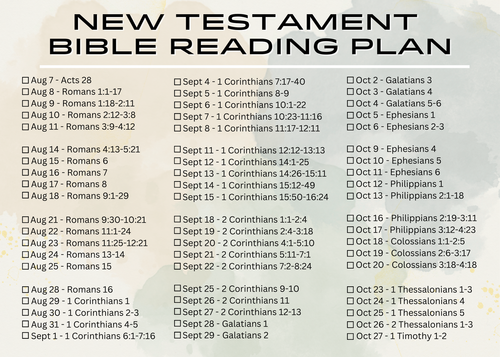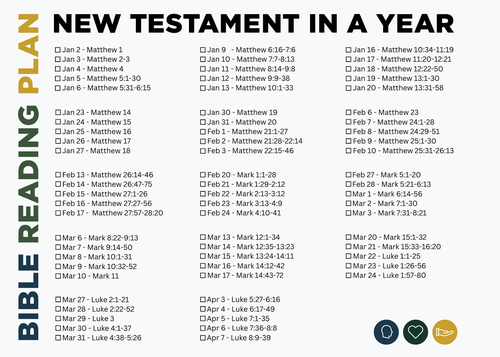The God Of All Comfort
2 Corinthians 1:1-2:4
Paul, personally commissioned by Jesus himself, embodies the role of an apostle. As an apostle, he is entrusted with endorsing and defending the gospel, which emerged in world history through Christ's life, death, and resurrection. His plea to the letter's recipients is to acknowledge their sins and pledge their loyalty to Christ. In the letter, Paul introduces himself and Timothy, referring to them as the senders. The intended recipients are the believers in Corinth, referred to as the "church of God."
Once again, Paul addresses these believers as "saints," emphasizing that every true Christian is a "holy one." The verb form of the noun used here for "saint" means "sanctify." In a general and comprehensive manner, Paul uses the term "grace" to remind the Corinthians of the central reality of Christian existence: God's undeserved goodness to sinners. "Peace" often accompanies grace in Pauline greetings and serves as a fitting counterpart. Logically, grace takes precedence and, upon reaching the sinner, brings about a state of peace.
God's deepest heart overflows with boundless mercy and comfort. It's not just that every true comfort we experience comes from God, although that is true; comfort defines His very nature. He is the "God of all comfort." Comfort is not just an adjective describing God's character; it is a verb that encompasses His actions. Why does God comfort us in our pain? So that we may become conduits of divine comfort to others who are also in pain—indeed, in "any" kind of pain. That's why the comfort that flows through believers is just as genuine as the comfort that comes directly from God: because believers are in Christ, being comforted by fellow believers means being comforted by Christ Himself.
Paul's statement, "the sufferings of Christ abound to us," implies that those united with Christ share in the cruciform pattern of existence that Christ himself experienced. What is notable is that Paul associates his sufferings and comfort with the ultimate purpose of bringing comfort to the Corinthians. His primary focus is not his well-being but the Corinthians's well-being.
Paul assures his friends that he believes in their spiritual strength. He is confident that they will endure until the end. Paul personally identifies with the theology he just praised and wants them to know that he practices what he preaches. He has experienced the same trials and has relied on God. Paul and his companions faced a severe trial that overwhelmed them to the point of despairing of life itself. They had accepted the reality that it was the end. Paul reached the end of his strength and resources, leaving him nowhere else to turn but God. Through divine intervention, God delivered and rescued Paul and his companions. Regardless of the trial, God will breathe new life into us. He raised Christ from the dead and will raise those who rely entirely on Him, whether it is a symbolic death or physical death.
What are the capabilities of the Corinthians? By offering their prayers, the Corinthians are partnering with Paul to spread the gospel across the Mediterranean during the crucial early years of the church's growth. Paul intentionally resisted the tendency of conforming to worldly strategies, which the Corinthians admired and absorbed, and instead relied on the grace of God for his work. When human ingenuity and self-made plans reach their limits, that's where grace takes over.
Paul has remained consistently steadfast. He is resolute in his travel plans and unwavering in his message. This present letter is a natural extension of Paul's ongoing communication with the Corinthians. Paul's message remains unchanged; instead, it is the Corinthians who have yet to fully grasp the profound implications of operating "by the grace of God" instead of relying on earthly wisdom (v. 12). They have glimpsed a portion of the gospel truth, but have not fully delved into the transformative nature of how the gospel challenges our conventional ways of thinking. Paul is confident that, in due time, the Corinthians will blossom into a complete understanding.
They are starting to understand that on the day of final judgment, true Christians will take pride in something beyond themselves rather than within themselves. As a wise and caring shepherd, Paul expresses his belief in the Corinthians' ongoing development in comprehending how the gospel shifts the basis of one's boasting (1:14).
Paul affirms that his plans were not made lightly. However, he could not fulfill them due to significant and unforeseen circumstances. He genuinely intended to be present in Corinth to improve their spiritual welfare. Paul places his integrity at the same level as God's unwavering faithfulness.
However, God's faithfulness is evident in more than just Paul's sincere ministry. It is also demonstrated through God's actions in his Son, who came to fulfill all of God's promises. In Christ, whatever God has pledged is accomplished, and whatever God has said he will do, he has done it. Jesus Christ is tangible evidence that God is faithful and remains true to his word.
In Christ, God has resounded "Yes," and the Corinthians have joined Paul in wholeheartedly saying "Amen." Paul highlights that both he and the Corinthians have been established through the Spirit. But how are believers truly established in Christ? Firstly, they are anointed, set apart by God for special service to Him. Additionally, believers are sealed, firmly confirmed, and identified as belonging to God. This seal provides security and safety. Lastly, the presence of God's Spirit in our hearts guarantees the arrival of the new age. It is important to note that being sealed and receiving the Spirit go hand in hand; one cannot have one without the other.
While some may question Paul's intentions, God, who sees everything, knows the truth, and Paul appeals to Him. Paul chose not to visit the Corinthians to protect them, not driven by selfish motives but for their well-being. This may lead to accusations of unhealthy authoritarianism, but Paul's motive is to nurture their joy and not exert control over them.
Paul's emotional well-being is intertwined with that of his friends in Corinth. He shares their joy and sorrow, and his heart is deeply connected to their spiritual welfare. Instead of visiting them, Paul sent a letter, aware that this decision might raise questions about his sincerity and motives. However, he believed staying away and expressing his thoughts through writing was necessary. By doing so, Paul alleviated his grief and eased the Corinthians' burdens.
In a genuine Christian community, there is no concept of individual welfare or sorrow. Paul wrote his previous letter "out of much affliction." The important thing to note is that Paul felt deeply emotionally constrained. The raw emotional and psychological state from which Paul wrote his previous letter, despite the rebuke it seemingly contained, was not driven by anger, frustration, or impatience. Its ultimate intention was for the Corinthians to feel loved by Paul.
Once again, Paul addresses these believers as "saints," emphasizing that every true Christian is a "holy one." The verb form of the noun used here for "saint" means "sanctify." In a general and comprehensive manner, Paul uses the term "grace" to remind the Corinthians of the central reality of Christian existence: God's undeserved goodness to sinners. "Peace" often accompanies grace in Pauline greetings and serves as a fitting counterpart. Logically, grace takes precedence and, upon reaching the sinner, brings about a state of peace.
God's deepest heart overflows with boundless mercy and comfort. It's not just that every true comfort we experience comes from God, although that is true; comfort defines His very nature. He is the "God of all comfort." Comfort is not just an adjective describing God's character; it is a verb that encompasses His actions. Why does God comfort us in our pain? So that we may become conduits of divine comfort to others who are also in pain—indeed, in "any" kind of pain. That's why the comfort that flows through believers is just as genuine as the comfort that comes directly from God: because believers are in Christ, being comforted by fellow believers means being comforted by Christ Himself.
Paul's statement, "the sufferings of Christ abound to us," implies that those united with Christ share in the cruciform pattern of existence that Christ himself experienced. What is notable is that Paul associates his sufferings and comfort with the ultimate purpose of bringing comfort to the Corinthians. His primary focus is not his well-being but the Corinthians's well-being.
Paul assures his friends that he believes in their spiritual strength. He is confident that they will endure until the end. Paul personally identifies with the theology he just praised and wants them to know that he practices what he preaches. He has experienced the same trials and has relied on God. Paul and his companions faced a severe trial that overwhelmed them to the point of despairing of life itself. They had accepted the reality that it was the end. Paul reached the end of his strength and resources, leaving him nowhere else to turn but God. Through divine intervention, God delivered and rescued Paul and his companions. Regardless of the trial, God will breathe new life into us. He raised Christ from the dead and will raise those who rely entirely on Him, whether it is a symbolic death or physical death.
What are the capabilities of the Corinthians? By offering their prayers, the Corinthians are partnering with Paul to spread the gospel across the Mediterranean during the crucial early years of the church's growth. Paul intentionally resisted the tendency of conforming to worldly strategies, which the Corinthians admired and absorbed, and instead relied on the grace of God for his work. When human ingenuity and self-made plans reach their limits, that's where grace takes over.
Paul has remained consistently steadfast. He is resolute in his travel plans and unwavering in his message. This present letter is a natural extension of Paul's ongoing communication with the Corinthians. Paul's message remains unchanged; instead, it is the Corinthians who have yet to fully grasp the profound implications of operating "by the grace of God" instead of relying on earthly wisdom (v. 12). They have glimpsed a portion of the gospel truth, but have not fully delved into the transformative nature of how the gospel challenges our conventional ways of thinking. Paul is confident that, in due time, the Corinthians will blossom into a complete understanding.
They are starting to understand that on the day of final judgment, true Christians will take pride in something beyond themselves rather than within themselves. As a wise and caring shepherd, Paul expresses his belief in the Corinthians' ongoing development in comprehending how the gospel shifts the basis of one's boasting (1:14).
Paul affirms that his plans were not made lightly. However, he could not fulfill them due to significant and unforeseen circumstances. He genuinely intended to be present in Corinth to improve their spiritual welfare. Paul places his integrity at the same level as God's unwavering faithfulness.
However, God's faithfulness is evident in more than just Paul's sincere ministry. It is also demonstrated through God's actions in his Son, who came to fulfill all of God's promises. In Christ, whatever God has pledged is accomplished, and whatever God has said he will do, he has done it. Jesus Christ is tangible evidence that God is faithful and remains true to his word.
In Christ, God has resounded "Yes," and the Corinthians have joined Paul in wholeheartedly saying "Amen." Paul highlights that both he and the Corinthians have been established through the Spirit. But how are believers truly established in Christ? Firstly, they are anointed, set apart by God for special service to Him. Additionally, believers are sealed, firmly confirmed, and identified as belonging to God. This seal provides security and safety. Lastly, the presence of God's Spirit in our hearts guarantees the arrival of the new age. It is important to note that being sealed and receiving the Spirit go hand in hand; one cannot have one without the other.
While some may question Paul's intentions, God, who sees everything, knows the truth, and Paul appeals to Him. Paul chose not to visit the Corinthians to protect them, not driven by selfish motives but for their well-being. This may lead to accusations of unhealthy authoritarianism, but Paul's motive is to nurture their joy and not exert control over them.
Paul's emotional well-being is intertwined with that of his friends in Corinth. He shares their joy and sorrow, and his heart is deeply connected to their spiritual welfare. Instead of visiting them, Paul sent a letter, aware that this decision might raise questions about his sincerity and motives. However, he believed staying away and expressing his thoughts through writing was necessary. By doing so, Paul alleviated his grief and eased the Corinthians' burdens.
In a genuine Christian community, there is no concept of individual welfare or sorrow. Paul wrote his previous letter "out of much affliction." The important thing to note is that Paul felt deeply emotionally constrained. The raw emotional and psychological state from which Paul wrote his previous letter, despite the rebuke it seemingly contained, was not driven by anger, frustration, or impatience. Its ultimate intention was for the Corinthians to feel loved by Paul.





Recent
Archive
2023
January
Happy New Year!He Will Save His People From Their SinsMy Beloved SonTemptation And MinistryThe SermonLeaving, Lying, Limits, Love, Largesse, and The Lord's PrayerTreasure, Anxiety, and JudgmentAstonishing AuthorityStorms, Demons, and HealingJesus Is CompassionateHis Eye Is On The SparrowSwords, Rewards, and MessengersThe Lord of the SabbathBlasphemy, Bad Trees, Signs, and FamilyStories, Sowers, and SoilsParables, Hidden Treasure, and RejectionFame, Food, Fear, Faith, and FringeReal Issues And The Power Of GodDying To Find LifeLike The SunChildren, Temptation, Sheep, And ForgivenessMarriage, Kids, And MoneyTo Serve And Give His Life
February
The ArrivalStories That StingQuestion TrapsHidden Motives And LamentThe End...?UnexpectedReady?Punishment, The Plot, And PerfumeTreachery, Passover, and The CupBetrayal, Injustice, And DenialThe Field Of Blood And The GovernorCrucifixion And DeathAll AuthorityMark—The Beginning Of The GospelHealing, Preaching, And The Forgiveness Of SinEating With Tax Collectors, Fasting, The Sabbath, And An Escape BoatThe Twelve, Blasphemy, Family, And A ParableParables And PowerA Different Kind Of StormPower Had Gone Out
March
Death, Hunger, And MiraclesCommandment Or TraditionDo You Not Yet Understand?The Christ And A Glimpse Of His GloryUnbelief, Confusion, And SinDivorce, Children, And PossessionsTo Give His Life As A RansomHosannaThe Rejected Stone, Taxes, And The Great CommandmentDestruction And The EndNo One Knows, An Anointing, And A Promise To BetrayPassover And GethsemaneThe Kiss, Arrest, And DenialPilate, Simon, And The CrucifixionDeath, Burial, Resurrection, And What\'s NextTheophilus And A Visit From GabrielMary And The MagnificatBenedictusThe Arrival And The ShepherdsSimeon, Anna, And The SpiritFruits Keeping With Repentance And BaptismThe Wilderness, Nazareth, And CapernaumSimon's Mother-In-Law, Fishing, A Leper, And Sins
April
Tax Collectors, Fasting, Sabbath Controversies, And The TwelveWhy Do You Call Me Lord, Lord?Jesus Marveled, A Raised Son, And QuestionsA Sinful Woman And A ParableObeying The Word, A Storm, And DemonsTwelve Years, Twelve Apostles, And SpeculationGreater, Costly, And GloryNot Getting It, The Cost, And AppointedWoes, Neighbors, And What Is NecessaryHelp Us Pray And A Divided Kingdom?Signs, Lights, And WoesHypocrisy, Fear, A Fool, And AnxietyParables, Division, And The TimesWarnings, A Daughter Of Abraham, And Jerusalem, JerusalemA Son Or An Ox, Parties, And DiscipleshipLost ThingsThe Dishonest Manager, The Law, And Anguish In This FlameMillstones And Mustard SeedsPersistent Prayer, Humility, A Childlike Faith, And The Rich RulerEverything That Is Written, A Blind Beggar, And A Wee Little Man
May
A Parable, A Colt, A Prophecy, And A CleansingAuthority, Wicked Tenants, And TaxesThings To Beware Of And WidowsDestruction, Persecution, The Son Of Man, And WatchingThe Plot, Betrayal, Lord's Supper, And Inappropriate BehaviorPrediction, Fulfillment, Agony, Betrayal, And DenialMistreated, Taken Before The Council, Pilate, Herod, And Delivered To Be CrucifiedCrucifixion, Death, And BurialHe Is Not HereDisbelieved For JoyIn The Beginning…The Lamb Of God And A WeddingZeal, What's Inside, And Born AgainHe Must Increase
Categories
no categories
Tags
no tags
